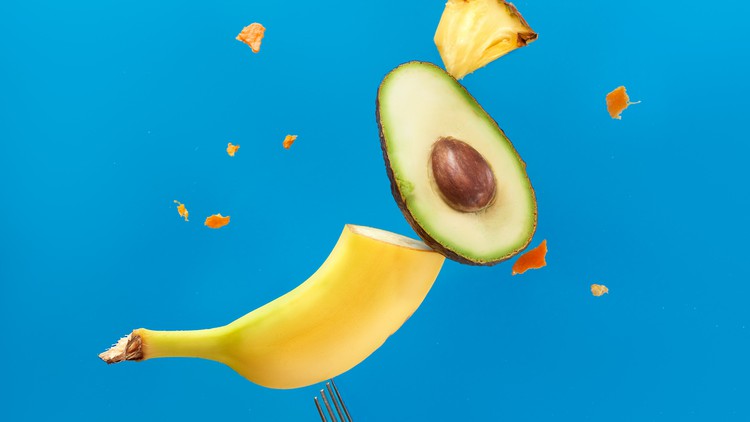This course covers the biochemistry of foods and nutrients with consideration of the physiological effects of specialized diets for specific biological needs. Topics include cultural, religious, and economic factors that influence a person’s acceptance of food, as well as nutrient requirements of the various life stages. Upon completion, students should be able to identify the functions and sources of nutrients, the mechanisms of digestion, and the nutritional requirements of all age groups.
1- Introduction A. Nutrients B. Nutrient Assessment C. Diet and Health
2. Planning a Healthy Diet A. Principles and Guidelines B. Food Labels
3. Digestion, Absorption, and Transport A. Digestive Tract Anatomy and Physiology B. Health and Regulation of the GI Tract
4. Carbohydrates A. Types/Structure of Carbohydrates B. Digestion and Absorption C. Glucose Metabolism D. Carbohydrate Intake
5. Lipids A. Types/Structure of Lipids B. Digestion and Absorption C. Lipid Metabolism D. Lipid Intake
6. Proteins A. Types/Structure of Proteins B. Digestion and Absorption C. Protein Metabolism D. Protein Intake
7. Energy Balance A. Energy Metabolism B. Body Weight and Body Composition
8. Weight Management A. Causes of Obesity B. Health Risks of Obesity C. Treatments and Weight-Loss Strategies
9. Vitamins A. Water-Soluble Vitamins B. Fat-Soluble Vitamins
10. Water and Minerals A. Water Intake and Balance B. Major Minerals C. Trace Minerals
.1- Identify and discuss nutrition problems facing today’s society. 2. Identify, distinguish, and discuss the necessities of being an informed consumer of nutrition products and services. 3. Identify, list, distinguish, and discuss the essential dietary nutrients and their role for good health. 4. Utilize dietary standards and guidelines to determine the nutritional adequacy of an individual’s diet for weight management and health. 5. Utilize dietary guidelines for disease prevention and management. 6. Distinguish, identify, and implement/demonstrate optimal nutrition for fitness and athletic/sport performance. 7. Distinguish, identify, implement/demonstrate safe food handling, preparation, cooking, and serving practices.
Deficiency of Carbohydrates
Vitamins
Diets
-
24Vitamins
-
25Deficiency of Vitamin A
-
26Vitamin B
-
27Vitamin B3
-
28Vitamin B6
-
29Vitamin B9
-
30Vitamin C
-
31Vitamin D
-
32Vitamin E
-
33Vitamin K
-
34Minerals
-
35Sodium
-
36Bismuth
-
37Calcium
-
38Chloride
-
39Chromium
-
40Copper
-
41Fluoride
-
42Iodine
-
43Iron
-
44Manganese
-
45Magnesium
-
46Selenium
-
47Zinc
-
48Water
-
49How much Water do you need
-
50Sources of Water
-
51Antioxidants
Diseases
-
52Diets
-
53Atkins Diet
-
54Atkins Diet 2
-
55Raw Food Diet
-
56Raw Food Diet 2
-
57Ketogenic Diet
-
58Ketogenic Diet 2
-
59Paleo Diet
-
60Paleo Diet 2
-
61Mediterranean Diet
-
62Mediterranean Diet 2
-
63Weight Watchers
-
64Weight Watchers 2
-
65DASH Diet
-
66DASH Diet 2
-
67Vegan-Vegetarian Diet
-
68Vegan-Vegetarian Diet 2


